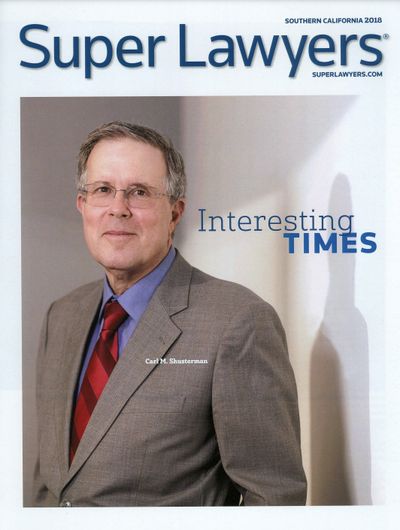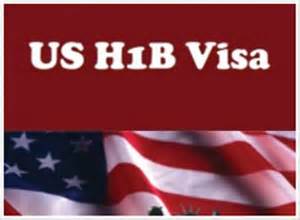 Who qualifies as an H-1B visa cap-exempt employer?
Who qualifies as an H-1B visa cap-exempt employer?
The H-1B visa program is used by employers to sponsor foreign workers in professions that require a university degree. This program gives foreign workers admission to the US for an initial period of 3 years and is utilized by businesses and organizations in need of workers with expertise in a specialized field.
There is an 85,000 annual cap on the number of H-1B visa petitions which can be approved by the USCIS for cap-subject employers. These H-1B petitions must be submitted to the USCIS during the first week of April each year for employment which begins on October 1st. Because of the large number of petitions submitted, USCIS uses a lottery to determine who will receive cap-subject H-1B status.
However, if you are sponsored by an H-1B visa cap-exempt employer, there is no lottery and such employers can submit H-1B petitions all year long.
You can stay up-to-date with the waiting times in the Visa Bulletin and other immigration news by subscribing to our Free E-Mail Newsletter.
Client Reviews

Great Work!
“We are very pleased by the services we get from the Law Offices of Carl Shusterman. Our experience in the past year with all our H1B renewals has been amazing, and we’ve obtained great results.”
- KRG Technologies, Valencia, California
Read More Reviews
Zoom Consultations Available!
H-1B visa cap-exempt employers include:
- Institutions of higher education;
- Non-profit entities which are “related to” or “affiliated with” institutions of higher education;
- Non-profit research organizations;
- Government research organizations.
It is important to note that it is not necessary that you work “for”, but only “at” an institution of higher education to be considered cap-exempt.
In order for an institution of higher education to qualify as a cap-exempt H-1B employer, it must meet the following criteria. According to Section 101 (a) of the Higher Education Act, an institution of higher education must:
- Be considered a public or non-profit institution
- Provide admission to students who have earned a secondary education
- Be a licensed by the proper institution to provide education beyond secondary school
- Offer educational programs which award bachelor’s degrees or, at a minimum, 2-year associate’s degrees.
 The following USCIS regulation defines what is a “related or affiliated nonprofit entity”:
The following USCIS regulation defines what is a “related or affiliated nonprofit entity”:
“The term ‘related or affiliated nonprofit entity’ is defined, both for ACWIA fee (8 CFR §214.2(h)(19)(iii)(B) and cap exemption purposes, to include nonprofit entities that satisfy any one of the following conditions:
(1) the non-profit is connected or associated with an institution of higher education through shared ownership or control by the same board or federation;
(2) the non-profit is operated by an institution of higher education;
(3) the non-profit is attached to an institution of higher education as a member, branch, cooperative, or subsidiary; or
(4) the non-profit has entered into a formal written affiliation agreement with an institution of higher education that establishes an active working relationship with the institution of higher education for the purposes of research or education; and a fundamental activity of the non-profit is to directly contribute to the research or education mission of the institution of higher education.” 8 CFR §214.2(h)(8)(ii)(F)(2)
A USCIS rule published in 2016 expanded the definition of an H-1B visa cap-exempt job to include:
“An H-1B beneficiary who is not directly employed by a qualifying institution, organization or entity identified in section 214(g)(5)(A) or (B) of the Act shall qualify for an exemption under such section if the H-1B beneficiary will spend the majority of his or her work time performing job duties at a qualifying institution, organization or entity and those job duties directly and predominately further the essential purpose, mission, objectives or functions of the qualifying institution, organization or entity, namely, either higher education, nonprofit research or government research.
The burden is on the H-1B petitioner to establish that there is a nexus between the duties to be performed by the H-1B beneficiary and the essential purpose, mission, objectives or functions of the qualifying institution, organization or entity.”
Physicians who have received J waivers are also H-1B cap-exempt.
To file an H-1B visa cap-exempt petition, your employer must submit Form I-129 including the H classification supplement pages. Along with the petition, your employer must submit a Labor Condition Application (LCA) and evidence of your educational credentials, usually in the form of a transcript.
It is in your best interest to consult an experienced immigration attorney before deciding to apply for an H-1B visa cap-exempt petition.
If you wish to receive a decision on your H-1B visa cap-exempt petition as soon as possible, your employer may submit a Request for Premium Processing Service utilizing Form I-907.
H-1B Visa Cap-Exempt Links
- H-1B Visas for Temporary Workers – Explore My Options (USCIS)
- List of H-1B Cap Exempt Employers
- H-1B Specialty Occupations, DOD Cooperative Research and Development Project Workers, and Fashion Models (USCIS)
- USCIS Announces Temporary Suspension of Premium Processing for All I-129 and I-140 Petitions Due to the Coronavirus Pandemic








